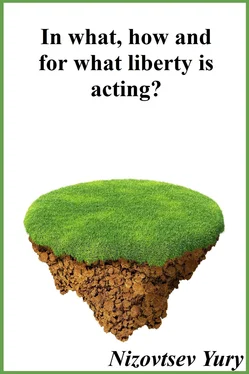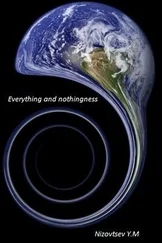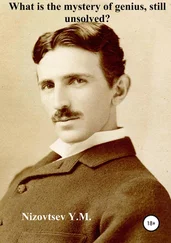The dissatisfaction of consciousness defining main aspirations of the person is not feeling of some discontent, type – the eyelash got to an eye, – and understanding by soul of own imperfection. Created in a conceiving state by consciousness projects simply would "hover" in it, if there is no this dissatisfaction that provides aspiration to achievement of a goal which consciousness have thought by necessary at present, and will induces the person to go on the planned way to the purpose, overcoming or bypassing obstacles. And the purposes appear in consciousness only thanks to its eternal dissatisfaction with itself, and, so, by aspiration to change themselves through the reality.
Thus, in the human during this process of implementation of the project, the commit of an act or an action are combined under the auspices of consciousness liberty, necessity and will.
Procedure of manifestation of liberty state of consciousness is such. At first consciousness reflects existence only that environment which corresponds to its aspiration based, in turn, for example, on a certain unsatisfied requirement, scanning everything around. However before it consciousness into itself fixes this dissatisfaction, creating on the basis of representations available for it an image of that it would like. This image can be very indistinct, but exactly it specifies the direction of motion. Therefore consciousness scans environmental space finding suitable subjects or situations. If it finds them, it uses anyway if is not present, then consciousness defines obstacles to the created image of aspiration and a way of their elimination. Will it succeed in human actions to achieve the desired – is another question. But, actually, the issue is already resolved in consciousness. This picture shows work of liberty of consciousness of the person in his practical actions.
We try in this work to clarify problem of liberty, considering that it does not exist outside individual consciousness which is formed only in community of reasonable individuals, depends on the level of consciousness of the specific individual who is in concrete community and, thus, we believe that the individual is free so, how high the consciousness level acquired by him.
In turn, level of consciousness is defined by a time factor, i.e. by events in which the understanding subject participates. Therefore liberty as a state of consciousness concerning the outside world on an initial stage of development of human communities, practically, was not manifested – reigned necessity of a survival. Then the conscious subject started understanding that environment surrounding him with existing cycles and conversions gives in to transformation, human communities start changing environment, forming own reality, reorganizing, changing order surrounding him in which the person has an opportunity to doubt, choose, project, work, moving ahead or rolling away back.
Eventually technological development of a civilization leads the person to understanding of the power over the nature with particular release from its fetters. The mankind gets an opportunity cardinally to change living conditions, its number grows. It seems, as well human liberty has to grow. However it appears that level of technological development, i.e. the external is not defining for growth of the liberty of the person. Social relations, having expanded the range of a choice of life opportunities of the person in comparison with archaic society and having brought him up to a democratic choice of a social system, narrowed an individual choice of the person up to that limit at which he is capable only to exist but not fully to live in the framework of a consumer society allocated to him. Each person perfectly realizes that to develop potentially the free consciousness, the aspirations to the outside which are formed at him all the time, to him practically nowhere.
So the declared liberty, apparently, provided by society to the person is illusory, and he is capable although often and wishes otherwise, to the little. It once again proves that liberty does not come from outside, and depends, first of all, from internal state of the person and according to the society consisting from people which (the society) on this basis is formed.
Apparently, the problem of liberty is more complex, than it is represented originally.
Liberty at all is not direct property of a universe, the nature. On the contrary, rigorous laws which, in particular, control existence and development of the material worlds and various measurements act there, without allowing them to collapse. And ratio of uncertainties only speaks about level of our comprehension of a reality, but not about existence at a universe of a free will, the liberty of actions.
Liberty did not exist nor up to a universe or up to God, as, for instance, considered N. A. Berdyaev.
Two assumptions can be here.
The first consists that if by the act of creation from Nothingness was created the world (Berdyaev trusts in this) that, as we know, neither life, nor the human, at first was not in this world. Liberty is not necessary to a lifeless matter, a lifeless matter is "satisfied" by an order of own movement. And who needs in the lifeless matter which is not aware itself how that if only the lifeless matter is a basis for something else? From where then liberty undertook in our world? So, it together with the person was created by God who has created before it organic life which he did not give liberty too. So in this case Berdyaev's reasons concerning the pristine of liberty, its emergence from a chasm, from Nothingness look unconvincing.
The second assumption consists that it is impossible to make something from Nothingness. Well then, this something existed, in our comprehension of time, always. At such assumption if everything including mind were always, God as Prime Creator is not necessary. Well then, and liberty existed always but it was not at the nature which conscious is not inherent, and liberty was at mind. [1]
The first assumption concerning emergence of all reality, which is typical for the bound, religious consciousness, relies only on influence from outside, on a miracle and looks unconvincing.
The second assumption looks more reasonable because there is nothing external as well as there are no miracles in it.
As for contraposition by Berdyaev of ideal spirit and a «rough» matter, beingness in the respect that the matter cannot have spirituality, we note that based on the latest experimental data as well as theoretical models, in particular, based on the theory of superstrings, our Universe has more than ten measurements. Therefore the assumption is possible that these measurements, from the point of view of matter density, accommodate as though on the type of a ladder, approaching at its top to the point of a singularity, and, so-called, the point of a singularity is characteristic by lack in it of space and time. It turns out that there may be measurements in which matter, in our understanding, there is practically no, and mind which is present there, though not disembodied, but other. Apparently, souls descend to our world from there, passing all "ladder" of various measurements from bottom to top in what consists their cycle of development in our Universe. There can be a set of options including known option of the holographic Universes where all variety of the worlds is secondary and each their particle is only a holographic projection of a single reality. In other words, apparently, constant structures are only relatively independent subordinated substances which are manifested from integrity of fluid motion and then being dissolved back in it in never-ending process of a becoming. [1]
Anyway, it is clear that reasonable formation from another measurement can be retained in our measurement only by means of creation of our world, for example, in the form of symbiosis of a high-organized animal and field formation of the unknown to us type which we call soul. Thereby the eternal soul and a finite body are united temporarily, forming the person.
Читать дальше
Конец ознакомительного отрывка
Купить книгу












